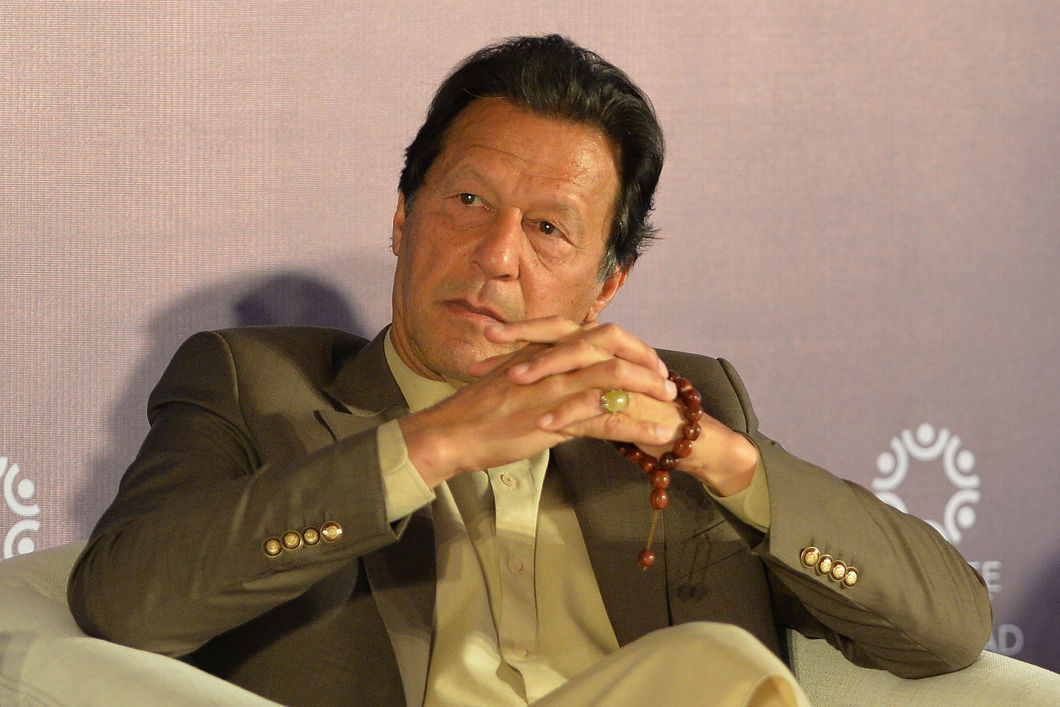#Abraham Lincoln had once said, %u201CYou can fool some of the people all of the time, and all of the people some of the time, but you cannot fool all of the people all of the time.%u201D This is a simple lesson which Pakistan refuses to learn while relentlessly trying to hoodwink the international community.
Therefore, one is heartened by the fact that yesterday, on October 23, the Financial Action Task Force( FATF) sent across a stern message that it had not been fooled by Pakistan’s jiggery-pokery. The FATF is an intergovernmental organisation founded in 1989 at the initiative of the G7 to develop policies to combat money laundering, and in 2001, its mandate was expanded to include terrorism financing. The FATF maintains two sets of lists which are informally called the black list and the grey list respectively. The ‘black list’ comprises %u201Ccountries or jurisdictions with such serious strategic deficiencies that the FATF calls on its members and non-members to apply counter-measures%u201D. The ‘grey list’ includes those countries for which %u201CFATF calls on its members to apply enhanced due diligence measures proportionate to the risks arising from the deficiencies associated with the country%u201D. Pakistan was added to the grey list in October 2012 but managed to come out of it in February 2015. It was added to the grey list for a second time in June 2018, and since then, it has been trying to exit the grey list again.
At its plenary meeting from October 21-23, the FATF voted to keep Pakistan on the ‘grey list’ for its failure to comply fully with a 27-point compliance plan given to it in June 2018 which was aimed at putting meaningful curbs on terror-financing. While Pakistan claimed that it was taking action to comply with the FATF recommendations, the latter pointed out Pakistan%u2019s failure to substantially deliver on 6 of the 27 action points and prevented it from exiting the ‘grey list’.
Thus, Pakistan now finds itself proverbially between a rock and a hard place. On the one hand, the FATF is unrelenting in its insistence that Pakistan should come clean, completely break its ties with all terrorist organisations and put in place meaningful curbs on them. On the other hand, Imran Khan’ government is unable to break these ties because the Pakistani deep state is hand in glove with terrorism and uses it as an instrument of state policy.
In pursuit of its game plan to hoodwink the FATF, Pakistan had hurriedly pushed through three legislations%u2014the Anti-Terrorism Act (amendment) Bill, 2020, the Anti-Money Laundering (Second Amendment) Bill and the Islamabad Capital Territory (ICT) Waqf Properties Bill%u2014by calling a special session of Parliament in September. However, it was apparent that these were merely in the nature of window-dressing, for there was no let-up in the terrorist attacks being abetted from Pakistani soil against India or Afghanistan.
Furthermore, in a classic case of being too clever by half, Pakistan had hired a top US lobbyist firm to push its case with the Trump administration and get bailed out of the grey list. The US is aware that the ISI, which is the Pakistan army’s intelligence wing is financing and helping the leaders of the Taliban, Haqqani network, al Qaeda and Islamic State to carry out terrorist acts in Afghanistan. Pakistan has been trying to hoodwink the US by claiming that these organisations are in fact based in Afghanistan, have sufficient funds of their own and that it is not financing or helping them. Pakistan also denies the allegations that the Taliban and the Haqqani network operate from its territory or that the ISI is behind them. Clearly, the US is not gullible enough to be taken in by Pakistan’s lies.
India bears the brunt of Pakistan%u2019s use of terrorism and sees the FATF as an important body which can put pressure on this rogue nation to dismantle the infrastructure that supports cross-border attacks. India has also furnished evidence to show how Pakistan continues to be a safe haven for UN -designated terrorists such as Dawood Ibrahim, MasoodAzhar, Hafiz Saeed and Zakirur Rahman Lakhvi. The FATF decision to keep Pakistan on the grey list is a vindication of India’s stand.
In this regard, it may be mentioned that India%u2019s Permanent Representative to the United Nations, Ambassador TS Tirumurti, had recently hit out at Pakistan for harbouring terror groups and had said: %u201CIt%u2019s a well-known fact that Pakistan is the nerve centre of terrorism. Pakistan is home to the largest number of listed terrorists, internationally designated terrorist entities and individuals, including Jamat-ud Dawah, Lashkar-e-Taiba and Jaish-e-Mohammed and Hizbul Mujahideen; they are continuing their operations from Pakistan”. Referring to United Nations%u2019 26th report of the Analytical Support and Sanctions Monitoring Team concerning ISIS, the ambassador had said that there is a clear acknowledgement that the leadership and funding for the terrorist entities like Al-Qaeda, ISIS emanate from Pakistan. %u201CUnder the 1267 Committee, which submits its report periodically on terrorist activities of ISIL ,Al Qaeda and its affiliates, there are several direct references to Pakistan%u2019s involvement,%u201D Tirumurti had pointed out.
By keeping it on the grey list, the FATF has demonstrated that Pakistan’s attempt to pull wool over its eyes has not succeeded. However, Pakistan will use new stratagems to wriggle out of the grey list at the next FATF plenary meeting in February 2021. At the same time, it will not stop using terrorism as an instrument of state policy. In such a scenario, it is unlikely that there can be any improvement in India’s relations with Pakistan. At an on-line event recently hosted by the Asia Society on October 16, External Affairs Minister S. Jaishankar summed up India’s position when he said “Terrorism from Pakistan remains publicly acknowledged by their government as a policy that they are justifying. So, it makes it very hard to conduct normal relations with them”.







